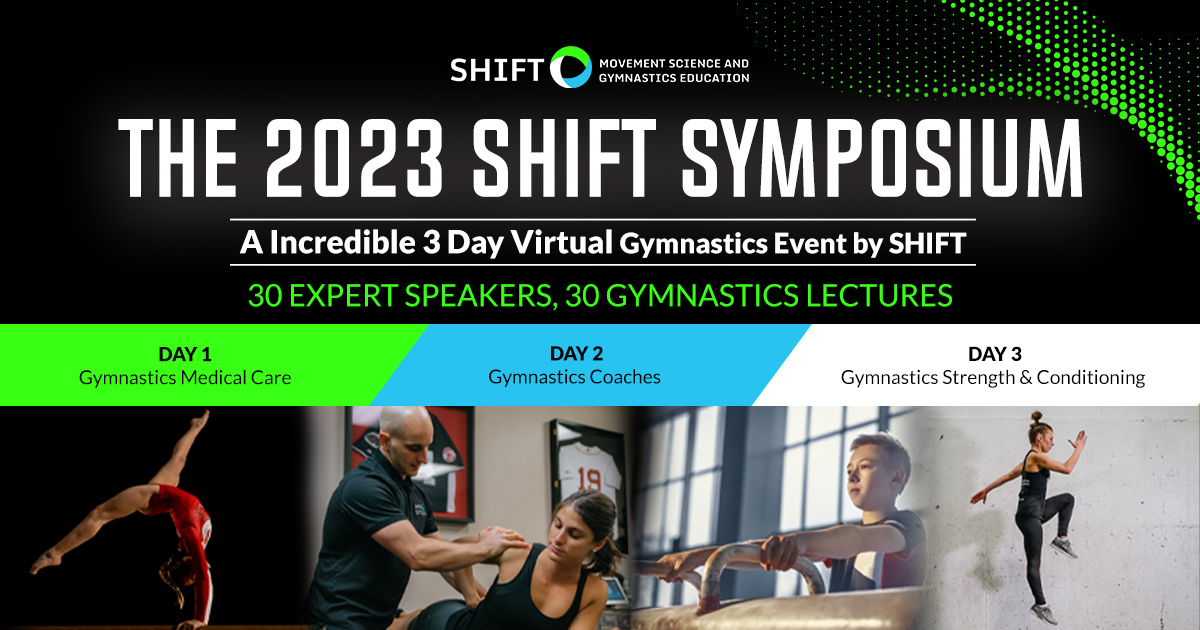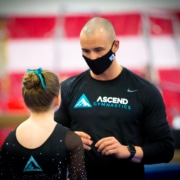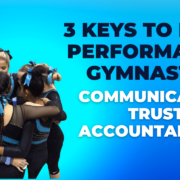5 Essential Skills for Gymnastics Coaches to Successfully Work with Athletes
Gymnastics coaching is a challenging and rewarding profession that requires a diverse set of skills. To really excel in the sport, be happy at work, and effectively work with athletes, coaches need to possess certain key attributes. In this article, I want to share five of the most important skills for gymnastics coaches to have in order to be successful that I’ve seen work across many elite, college, and club programs and talking with over 200 guests on our podcast. This is to not only help the athletes maintain progress but also help coaches enjoy their day-to-day work.
Before we dive in, we are in the LAST WEEK to get tickets or the 2023 SHIFT Symposium which is an epic 3-day virtual gymnastics education event that features lectures from world wide experts on vault, bars, beam, floor, pommel horse, high bar and rings technique as well as flexibility, strength & power exercises, plyometrics, mental blocks, culture, and more. You can get tickets below here before they are no longer available!
Let’s dive in!
Table of Contents
1. Communication Skills
Effective communication is the cornerstone of a successful coach-athlete relationship. There are a few components to this. One being verbal (language used, tone, pace, etc) and the other being nonverbal (eye contact, body language, focus, etc). I would argue nonverbal skills are more important than verbal, as people believe what you do more than what you say.

The second layer to this is the ‘hard’ skills to communication (technique, drills, progressions, skill feedback) vs “soft” skills to communication (empathy, compassion, patience, etc).
Gymnastics coaches must be able to clearly convey instructions, provide constructive feedback, and offer encouragement to their athletes. They need to adapt their communication style to suit individual athletes’ needs and learning preferences to manage the ‘hard’ skills of helping athletes actually learn the sport.
Going hand in hand with this, coaches have to understand the role that empathy, compassion, and genuinely caring for athletes’ well-being play to develop trust. The fact of the matter is that gymnastics is challenging, and will come with inevitable periods of fear, adversity, and letdowns. Having these human-level emotional communication pieces front of mind is one of the absolute pillars I’ve seen in coaches who regularly get athletes to the highest levels, who enjoy their work, and who are keeping athletes mentally/physically well.
Actionable Item – the next time you are working with an athlete, focus on being completely present (no phone/watch/etc) and maintain healthy eye contact to establish true active listening.
2. Constant Learning Systems
In the ever-evolving world of gymnastics, coaches must stay updated with the latest training methodologies, skill advancements, and research related to things like strength and conditioning or mental health. Constantly expanding their knowledge and skills enables coaches to provide the best guidance to their athletes, ensuring they reach their full potential. Now that said, there is a very big difference between building a habit and system of learning and just conveniently learning.
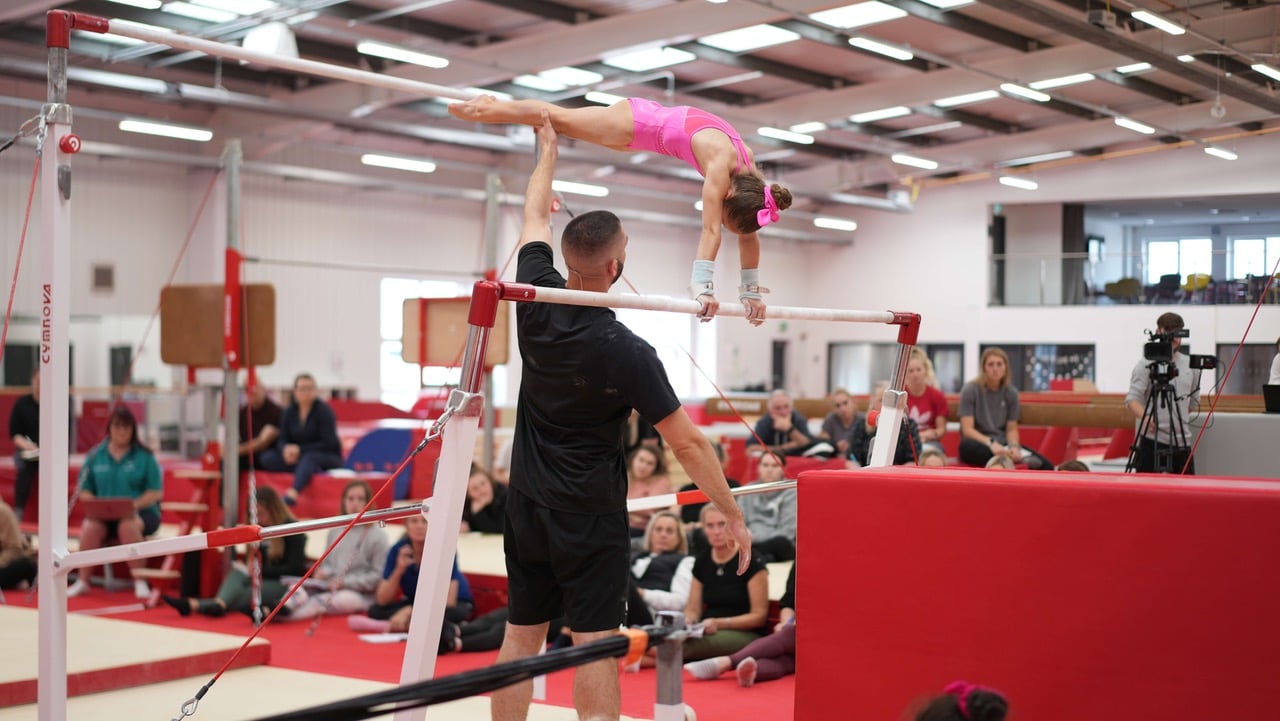
By this, I mean deliberately going out of your way, and blocking time to read, learn, talk with people, and practice new ideas. The most successful gymnastics coaches I’ve met actively seek out educational opportunities, listen to podcasts, attend conferences, go to other gyms and shadow, engage in professional development programs, and collaborate with other coaches to exchange ideas. By staying current with industry trends and advancements, coaches can create innovative training programs and effectively address the unique needs of their athletes.
Actionable item – For the next 7 days, block 30 minutes in your calendar to research or learn something in the field of gymnastics that you need work on, with no distractions or multitasking.
3. Empathy & Compassion
Gymnastics training can be physically and emotionally demanding for athletes. Coaches who demonstrate empathy and compassion create a supportive environment that nurtures athletes’ overall well-being. Understanding the challenges and pressures faced by athletes allows coaches to provide the necessary emotional support and guidance to help them thrive.

When chasing high-level goals, or working with many athletes, sometimes it is very tough to maintain this connection and one on one approach to athlete care. As someone who has coached groups of 15-20 female gymnasts for years in a row, I get it. But just because it’s hard, doesn’t mean we shouldn’t do it.
The best coaches I’ve met acknowledge and validate athletes’ feelings, celebrates their successes, and offer encouragement during setbacks. They also recognize the importance of maintaining a healthy work-life balance for athletes and prioritize their mental and emotional health alongside their athletic development. Remember it is health first, then help build great humans, then help build great gymnastics.
Actionable item – schedule 10-minute ‘check-in’ sessions with athletes you coach and ask them how they are doing overall as humans, not just with skills.
4. Self Awareness
Self-awareness is a fundamental skill for coaches to develop. It involves understanding one’s own strengths, weaknesses, communication style, and coaching philosophy. Coaches who possess self-awareness can better navigate challenging situations, adapt their coaching strategies, and build strong relationships with their athletes.
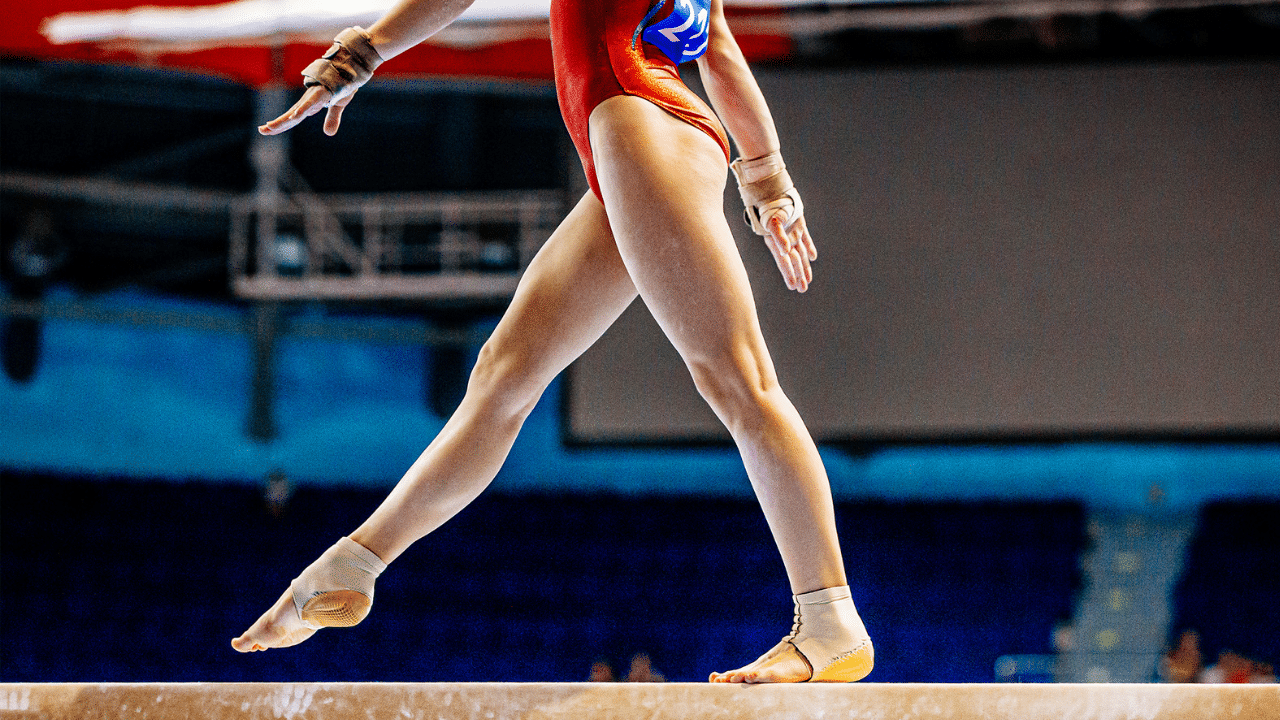
By reflecting on their coaching practices, seeking feedback from athletes and colleagues, and continuously evaluating their performance, coaches can identify areas for improvement and implement necessary changes. Self-aware coaches also recognize the impact of their actions and words on athletes’ development and adjust their approach accordingly.
For example, do you actively take care of your own health by sleeping enough, eating well, minimizing alcohol intake, addressing mental health issues, and spending time with loved ones? Also, do you need help with things like strength and conditioning, flexibility, or certain skill spotting techniques? Only you know these things, and as a result, only you can work to improve them.
Actionable item – ask a close friend or loved one to give you honest feedback about one thing they notice you might have a bad habit with, and what they think you could do to improve it.
5. Lack of Ego
This is by far, the most important. A crucial skill for gymnastics coaches to possess is a lack of ego. Coaches who prioritize the success and well-being of their athletes over personal recognition or glory create an environment that fosters growth and teamwork. By setting aside their ego, coaches can focus on the development of their athletes and make decisions that are in the best interest of the team. Not to mention, it again clearly prioritizes the athlete as a human before the athlete as a gymnast.

The best coaches I know drop their egos at the door. They are open to feedback and collaboration. They actively seek input from athletes, assistant coaches, and other experts in the field. They are willing to listen and consider different perspectives allowing coaches to refine their coaching methods and incorporate new ideas that can benefit their athletes’ performance. If you truly want to be happier in gymnastics, see athletes make more progress, and grow your program, dig into if you have an ego or not and one further, what the main root causes may be.
Actionable item – Spend 15 minutes writing down what your biggest insecurities or fears are as a coach, what triggers them, and what that may cause you to do within the gym that might present as having an ego. Then tomorrow, circle back and write some actionable items you could do to address them.
Conclusion
While that may have been hard for some people to read or think about, I promise you these five things are some of the most powerful skills you can gain. It may take months or years of work to really see solid progress, but doing the work can help take you on a path to being happier at work, helping athletes you coach to make progress, and creating an overall better training environment in the gym.
Again remember, if you are working in gymnastics and want an insane amount of useful information, we are in the LAST WEEK to get tickets for the 2023 SHIFT Symposium which is an epic 3-day virtual gymnastics education that you do NOT want to miss out on. Grab your tickets below before they close!
Hope this was helpful!
– Dave
Dave Tilley DPT, SCS


